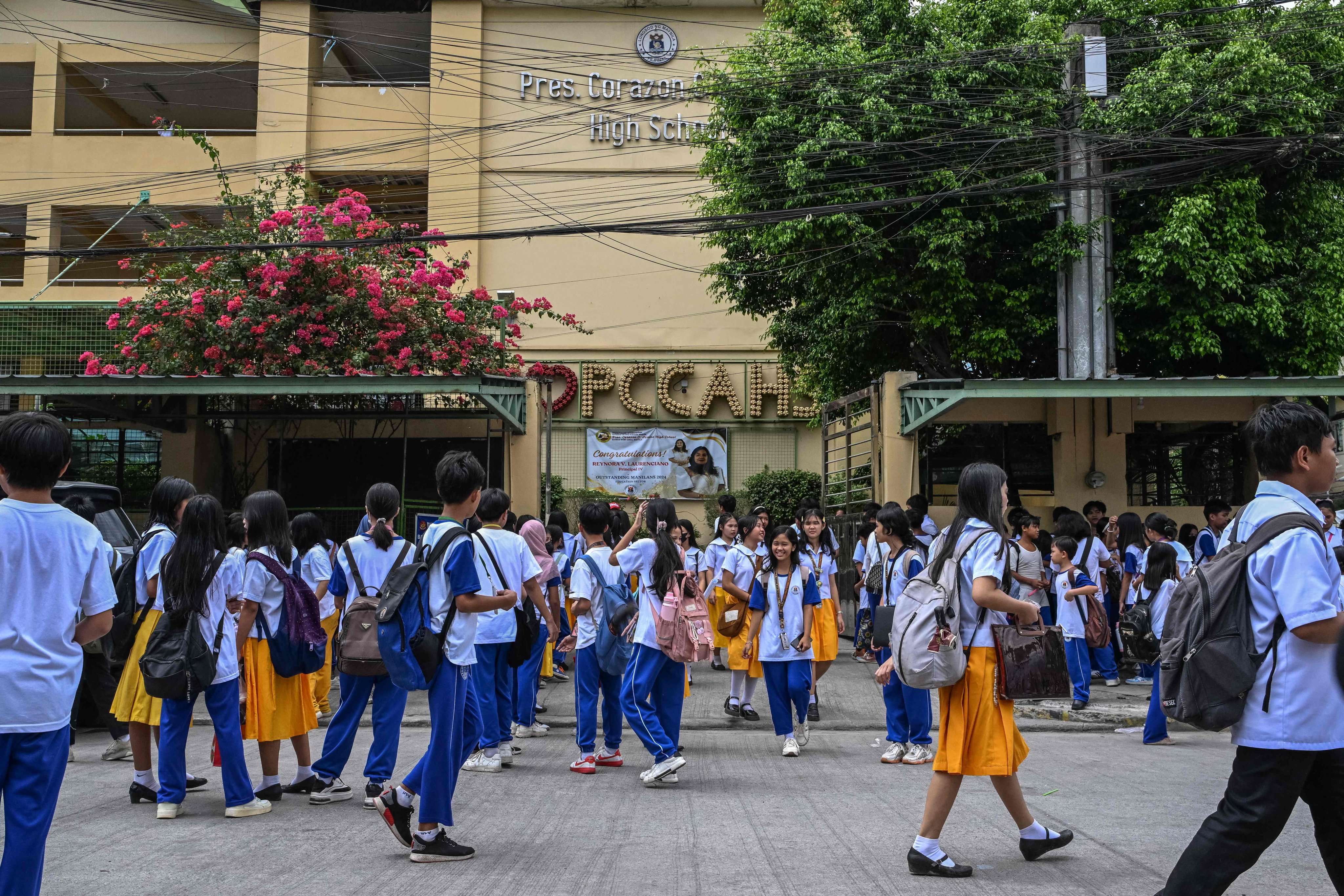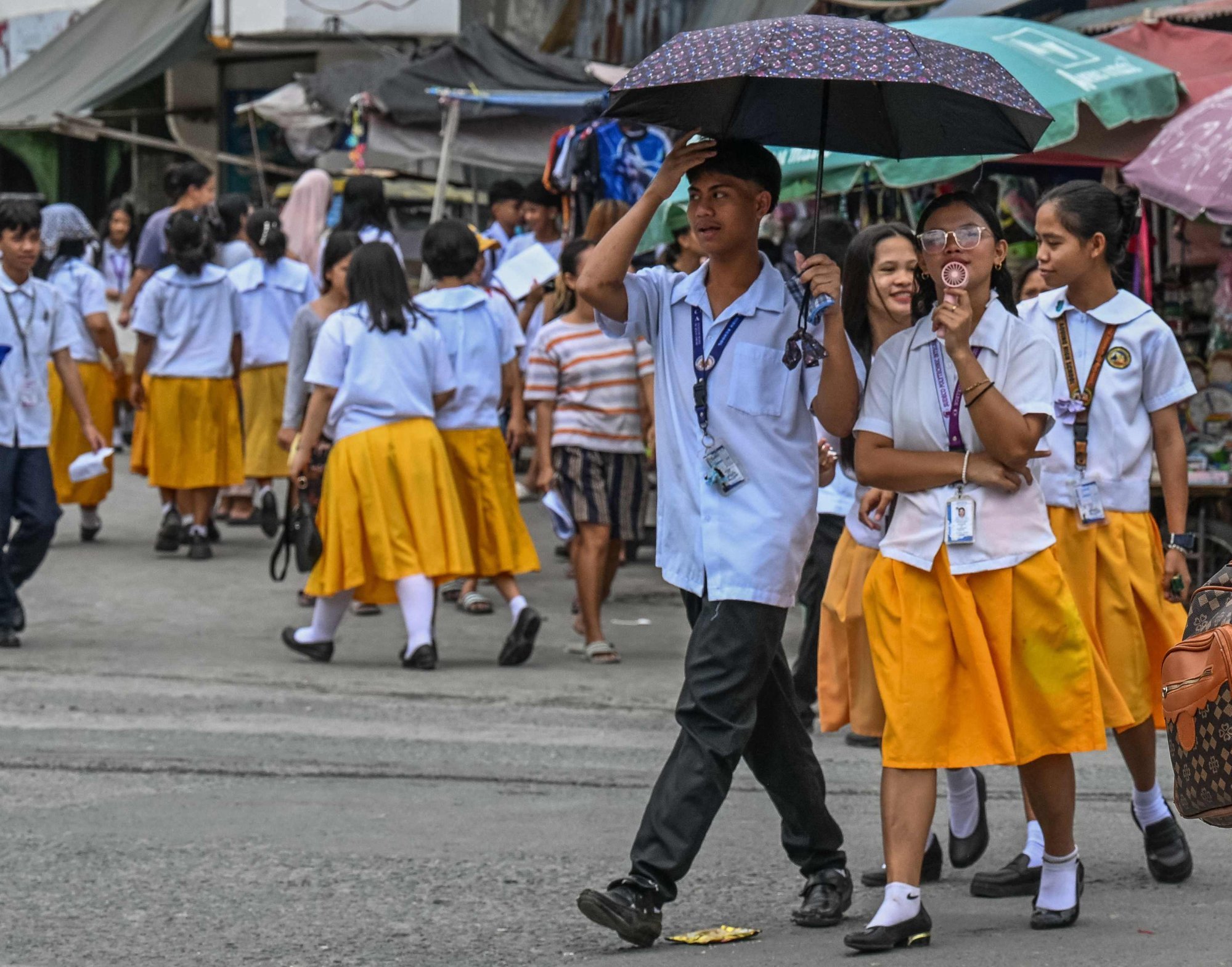Philippines faces educational crisis with 18 million graduates ‘functionally illiterate’
One in five high-school graduates cannot comprehend or understand a simple story, survey shows

A staggering 18 million high school graduates in the Philippines have been found to be “functionally illiterate” – a revelation that lawmakers and education experts say exposes systemic failings in the country’s school system that must urgently be addressed.
The figure was disclosed by the Philippine Statistics Authority (PSA) during a Senate hearing on Wednesday.
Lawmakers reviewed the results of the agency’s 2024 Functional Literacy, Education and Mass Media Survey, a nationwide assessment of basic and functional literacy levels across the population conducted every five years.
Last year’s edition surveyed 572,910 individuals from 177,656 sample households throughout the country.
“If you look at the 2024 figure, there are 18 million students who the PSA detected are [junior and senior] high school graduates, but they are not functionally literate. Meaning they graduated from our basic education system, but they cannot read, they cannot understand and comprehend a simple story,” said senator Sherwin Gatchalian, chairman of the Senate basic education committee.
Around 79 million were considered to be functionally literate in the 2019 edition of the report, which defined the term as having reading, writing and numeracy skills.
In 2024, however, this definition was updated to include higher-level comprehension skills, cutting the figure to 60 million.

“That’s one out of five graduates who cannot comprehend and understand a simple story,” Gatchalian said. “This is the gravity of our situation right now.”
The senator added that he supported the stricter definition of literacy as it offered a more accurate reflection of the country’s educational performance, but expressed alarm that students were still able to graduate without meeting these basic competencies.
“[This] should not happen. No one should graduate in our basic education system that will not be functionally literate,” he said, urging the Department of Education to be more proactive in addressing the issue.
‘Staggering, but not surprising’
The number of Filipino high school graduates lacking advanced comprehension skills is “staggering, but not entirely surprising”, according to Baguio City Representative Mark Go, who co-chairs the Second Congressional Commission on Education (EDCOM 2).
The commission is mandated to assess and recommend reforms to the country’s education system.
“The problems in literacy have been apparent in the EDCOM 2 reports and in previous international evaluation studies,” Go told This Week in Asia.
He cited the Programme for International Student Assessment by the Organisation for Economic Cooperation and Development released in 2024, in which the Philippines earned a mean score of 14 in creative thinking, well below the global benchmark of 33.
Meanwhile, a 2022 World Bank report on learning poverty – the inability to read and comprehend a simple text by age 10 – showed the Philippines at 91 per cent, while Singapore was at 3 per cent.
“All studies independently prove that the country has an educational crisis, with a wide gap between our country’s quality of education and our neighbouring countries’,” Go said.
Go, also chairman of the Higher and Technical Education Committee at the House of Representatives, added that the figure was concerning as it affects the country’s ability to be globally competitive in its labour exports against neighbouring countries.
“Our country’s children sadly fall far behind in the competencies required to build the foundational skills to become globally competitive. It shows that the very foundation of critical thinking and problem-solving that needs to be inculcated in children beginning from the time they start schooling is missing,” he said.
Go said that the problem had been aggravated by the “learning loss” during the pandemic, when education was disrupted by cancellations and unequal access to technology to carry out distance learning.

The provinces with the highest functional illiteracy rates were in Mindanao in southern Philippines, with Tawi-Tawi – the country’s southernmost province – at 67 per cent, followed by Davao Occidental at 43 per cent.
“In Tawi-Tawi, if you want to bring businesses there, have meaningful livelihood programmes, it’s very difficult if people cannot even understand or comprehend a simple story. So again, breaking the cycle of poverty is very difficult if we have problems with both basic and functional literacy,” Gatchalian said.
Gatchalian said that it was “important that we flag the local government units in that area to address illiteracy in their locality, either by using their own resources or allocating national resources so that it can be augmented”.
Meanwhile, Philippine Business for Education, a group advocating for education reform, urged midterm election candidates to place education at the centre of their platforms.
Candidates must “increase investments in basic and higher education, including teacher training, support, and school infrastructure, bridge the skills gap through stronger industry-academe linkages, and implement evidence-based reforms to improve learning outcomes and employability,” its Executive Director Hanibal Camua said.
The Philippines is headed to the polls on May 12.
“It is time to rise above politics and champion education. We urge the candidates to present concrete plans and real solutions that tackle the learning crisis, workforce readiness, and systemic reforms,” Camua said.